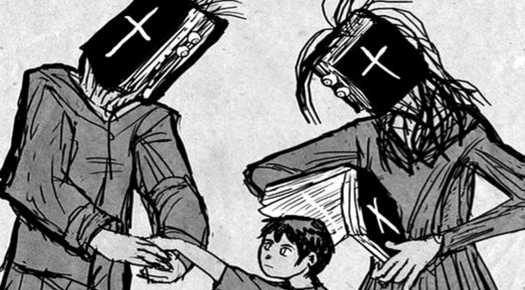
A provincial court judge in British Columbia, Canada recently ordered a pair of Jehovah’s Witnesses not to discuss religion with their four-year-old granddaughter, as the couple lost their bid for unsupervised access to the child. The grandparents, A.R. and B.R., had earlier insisted on taking the child A.W. to church services at a Kingdom Hall even though the child’s mother M.W. had clearly denied them permission.
In her 12-page-long decision, Judge Edna Ritchie refused to reveal the identities of those involved.
“There are many people with strongly held religious views that do not discuss those views in front of others, and specifically not in front of children,” Ritchie wrote.
Ritchie also elaborated that unless A.R. and B.R. could prove to the court that they are capable of complying with the mother’s wants, their time with A.W. would continue to be supervised.
This particular case is an example of the Family Law Act being pitted against Charter of Rights and Freedoms. While the former states that only a child’s guardian has right to parental responsibilities, including choices about his or her religious upbringing; the grandparents argued that being forbidden from expressing their religious faith to A.W. was a violation of the latter. M.W. insisted that her daughter could decide whether or not to participate in any particular religion at an older age, but A.R. and B.R. wanted A.W. to experience their religious affiliation now.
This legal battle happens to be the culmination of a saga that started three weeks after the child’s birth; when A.W.’s biological father L.R. informed his parents that he was the father. L.R. was immediately excommunicated from Jehovah’s Witnesses. Last month, he testified that he now has little contact with his parents. He also admitted that he pays no child support and does not share any parental responsibilities. Yet, when A.R. and B.R. insisted on having access to A.W., M.W. allowed them unsupervised access with the reasoning that family ties are important.
But according to Judge Ritchie’s decision, the relationship between B.R. and M.W. had been strained right from the start. Apparently, M.W. had a problem with A.R. and B.R. teaching A.W. to call them “Poppa” and “Momma” respectively instead of “Grandpa” and “Grandma.” Eventually, both parties fell out over the grandparents’ decision to take A.W. to a Kingdom Hall. Reportedly, since A.W. was a baby, her grandparents had been taking her to church services that her mother did not approve of. Yet, she did not voice her objections until December 2013, when she decided to switch the timing of their meetings. Later, she learned from A.W. that A.R. and B.R. had still managed to take her to church services the following spring. When confronted, the grandfather said that the child had begged him to take her to the Kingdom Hall. Visits were then restricted to supervised access at M.W.’s home, where she found her daughter being exposed to a Jehovah’s Witness film on A.R.’s laptop. At the time, B.R. said that the child had played the video before she could stop her.
Ritchie noted that when two parents with dissimilar religious views happen to share parental responsibility, the court often supports the child being exposed to both religions. However, since A.R. and B.R. are not A.W.’s guardians and M.W. happens to be the child’s sole guardian, the court was bound to respect the decision of the mother.
“I am concerned that the applicants' demonstrated inability to respect and comply with M.W's decisions on religion will continue to cause conflict,” she wrote. “It is not in A.W.'s best interests to be exposed to that conflict.”
Photo Credits: Kids without God
